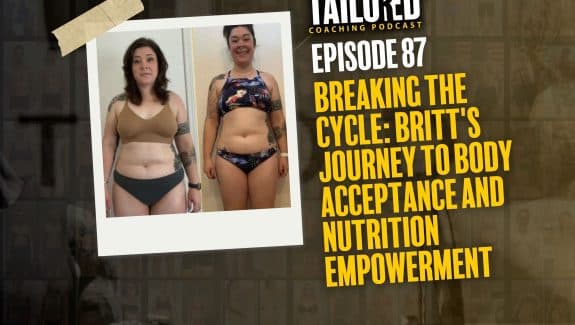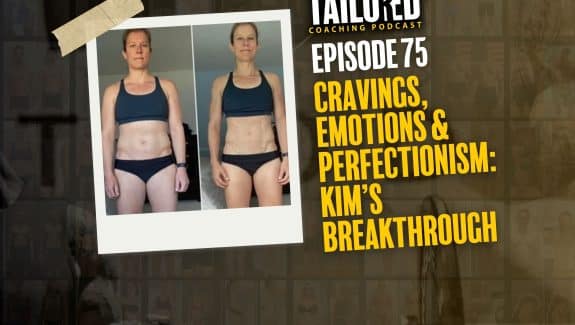You scroll through your Instagram and you read a post which says “Could your hormones be the reason you are gaining weight?”.
You are thinking, ‘Well I haven’t been doing anything differently in my nutrition or training for months, but somehow what first got me great results is not working anymore and now I am actually gaining weight. So yes, it must be my hormones!’
Have you ever felt like that? I sure have.
Generally speaking, hormones are such an intricate topic, they play a role and basically all bodily functions, so it is not wrong to assume there might be something with them when we lack other explanations for changes (or lack thereof) within our body.
It is my goal with this post to provide you with some clarity on five of the most important hormones, their function, symptoms and possible reasons for high or low levels and offer some suggestions on how you can naturally balance these hormones.
What are hormones, really?
Our bodies are constantly striving for homeostasis, so “balance” within. Hormones are messengers that regulate our whole body to create that balance (driven by the brain), through a very complex system called the ‘endocrine system’. This system is a network of glands that produce various hormones (there are over 50 different kinds!!). These messengers are designed to attach to a designated receptor or target cell which then activates the function of that intended cell. The whole system is regulated by a constant feedback mechanism and is never stagnant.
When imbalances occur that can lead to severe problems, because hormones literally regulate everything from body weight to emotions, appetite and temperament etc.
Today we are going to go over 5 of the main ones – testosterone, estrogen, cortisol, insulin, thyroid hormones (T3 and T4)
If you don’t want to read about each hormone in particular, feel free to skip to the summary section at the end of the blog on how you can naturally help balance your hormones.
Testosterone

Testosterone is a sex hormone, which is primarily produced in the testicles in men and in much smaller amounts in the overies in women, but also the adrenal gland. It regulates sex drive (libido), erectile function in men, bone mass, fat distribution, muscle mass and strength as well as red blood cell production and because of that energy levels.
It also plays a role in recovery from training and impacts metabolic function.
Possible signs of low levels
Decreased sex drive and/or sexual function, decreased muscle mass and strength, brain fog, wrinkled old skin, thinning hair, hot flashes, depression/anxiety, feeling tired/sluggish/unmotivated, weight gain (especially belly fat)
Possible signs of high levels
Easily irritable, aggressive, infertility problem, acne or oily skin, facial hair in women, weight gain (especially belly fat), failure to sleep through the night, high blood pressure, ovarian cysts in women
What you can naturally do to optimize your levels:
Exercise
Endurance training and strength training both have been shown to boost testosterone levels, particularly with compound movements (more muscles) in resistance training. HIIT training can also boost testosterone, HOWEVER, only in moderation, as overtraining can lead to an overproduction of cortisol and therefore too much oxidative stress in the body which means testosterone is lowered. If life stress is high anyway, focus more on low intensity resistance training and LISS and activities that stimulate the parasympathetic nervous system such as walking or yoga.
Sleep
Getting at least 7 hours of quality sleep has shown a very direct correlation with higher total and free testosterone. Even reducing that to 5 hours per night for a week showed to reduce testosterone levels by 15% (1) and reducing that to 4 hours per night has shown a decrease of almost 50% compared to an 8 hour sleep (2).
Stress
Any kind of chronic or excessive stress, whether through training, work, emotional or diet puts you in ‘fight or flight’ more, meaning your body is only focusing on surviving, which means reproductive hormones are no longer a priority. Basically, as cortisol levels go up, testosterone levels usually go down, since cortisol directly inhibits testosterone production.
Nutrition
→ Eating too many refined sugars, trans-fats or consuming alcohol has been linked to low testosterone levels, as well as not consuming enough dietary fat or protein. Also, the more fat cells we have, the more of our testosterone will likely get converted to estrogen (through aromatization in the fat cells).
→ Therefore keeping body fat at a “healthy” level and eating 80-90% whole foods, focusing on getting enough protein (at least 0.8g of protein per pound of body weight) and primarily getting your fats through “healthy” fats (for example from organic, grass fed meat, nuts, seeds, oils, fatty fish…) is one of the best things you can do to help balance Testosterone levels.
→ Alcohol also has a big impact on testosterone, since it raises estrogen and SHBG (Sex Binding Globulin). It also preoccupies the liver and because of that “waste” hormones don’t get cleared out, but circulated again and that causes imbalances. So consume alcohol on a less frequent basis and enjoy it in moderation.
Environment
In our modern society we are usually exposed to an abundance of hormone-disruption chemicals. Over time these chemicals can alter our hormonal profile and destroy the homeostasis our body is always trying to create. Most of these chemicals are found in pesticides, plastic and cosmetic or household products. How you can limit your exposure to endocrine disrupting chemicals will be discussed below in the ‘summary’ section.
Estrogen

All three estrogens, Estrone Estradiol and Estriol mostly come from the ovaries in women, but in both, men and women they also come from body fat and from the conversion from other hormones, as well as the adrenal glands.
In women it has a big influence on the menstrual cycle and in men it mainly helps with a healthy libido and the growth of sperm.
It also plays a role when it comes to creating healthy bones, utilization of other hormones, maintaining healthy skin and hair, brain function among many other things.
Possible signs of low levels
Hot flashes, low energy levels, night sweats, frequent UTIs, vaginal dryness, painful intercourse, migraines, brain fog, trouble concentrating/ remembering, low self-esteem/mood swings/anxiety, thinning hair, facial hair, dry skin, weight gain especially around the belly, achy joints
Possible signs of high levels
Heavy periods and stronger PMS symptoms, sore breasts, weight gain, migraines, brain fog, low self-esteem/mood swings/anxiety, easily irritated/crying, interrupted sleep, craving sugary foods, endometriosis, thyroid problems, blood sugar issues
What you can naturally do to optimize your levels:
Exercise
Regular physical activity can help with lowering estrogen levels. But keep in mind that excessive exercise (particularly high intensity exercise) drives up cortisol and puts the body in a constant ‘fight or flight’ state and therefore decreases hormone production resulting in a drop in estrogen (think of it from an evolutionary perspective, if you’re being chased by a sabertooth tiger, your body only thinks of survival and not of reproducing). Because of this, over exercising (often times paired with undereating) can result in loss of menstrual cycle (aka as amenorrhea). Switching high intensity training for LISS and lower intensity weight training as well as incorporating things like yoga or pilates and ensuring adequate nutrition can help regain lost periods or simply help improve period symptoms and regularity.
Sleep
When we sleep, our liver ‘resets’ from all the hard work of “cleansing” throughout the day. That means if we don’t sleep enough the liver tends to re-circulate excess estrogen in the body. 7 hours should be the absolute minimum amount we aim for.
Stress
As I explained above with excessive exercise, if our bodies are in a chronic or prolonged state of stress (work, emotional, exercise, not eating enough…) our body puts a hold on things that are not needed for survival, for example healthy immune function, losing weight, digestion and reproduction, including the production of estrogen…Stress-relieving things like walking more, getting out in nature regularly, having a good social support system, calming down by reading a book or taking a bath, doing breathing exercises or meditation regularly etc can help bringing down the nervous system and therefore helps balance estrogen levels.
Nutrition
→ Consuming enough dietary fats is important for the creation of all steroid hormones, including estrogen, because the cholesterol in the fats is essential for the production of those hormones. Because of that it is recommended not to drop fat intake too low (it should be set at least at about 0.3g/pound of body weight) and making sure we are consuming good quality fats (good quality meat, fish, eggs, nuts, seeds, avocados…) full of ‘good’ cholesterol is extra helpful.
→ Excess body fat levels means more fat calls and therefore more circulating estrogen. Because of that it is important to try and stay within ‘healthy’ body fat ranges.
→ Also, genetically modified foods are high in estrogen and can destroy the natural estrogen balance in the body, so make sure to buy non GMO foods and if consuming soy try to buy organic. Additionally, foods that cause inflammation, for example refined sugars, dairy and conventional meats can also raise estrogen levels and should be limited. Instead make sure you get a good variety of fruit and vegetables (particularly cruciferous veggies as they can help with the liver detoxification).
→ Alcohol can also raise estrogen levels and of course inhibits the detoxification process in the liver.
Environment
External estrogen does not only come from the diet, but can also come from chemicals in our environment, which can also contribute to excess estrogen levels. Refer to the ‘endocrine disrupting chemical’ section below for helpful tips on minimizing estrogen mimicking chemicals in your environment.
Cortisol

The hypothalamic-pituitary-adrenal axis (HPA) controls the production of cortisol in the adrenals and the release of it to any kind of stressor, whether physical or mental. Ideally, cortisol is highest about 30-60 minutes after waking up, slowly decreases over the day, is at its lowest just before bed time. Cortisol is inverse to melatonin (the sleep hormone), which explains why it is hard to go to sleep when we are amped up or train too late.
Cortisol also has anti-inflammatory functions within the body, which is why its chemical form is used in medicine. In addition to that, cortisol also helps regulate blood sugar levels (insulin), proper digestion, healthy metabolism, upholding again stressors and with maintaining blood pressure.
Because of the importance of this hormone Coach Cody has just recently written a whole blog post just on this hormone, so make sure to check it out!
Possible signs of low levels
Feeling dizzy, inflammation, muscle fatigue, rapid weight loss or weight gain, low blood pressure
Possible signs of high levels
Unexpected weight gain, high blood pressure, muscle fatigue, increased mood swings, brain fog, impaired thyroid function
What you can naturally do to optimize your levels:
Exercise
Exercise does temporarily increase cortisol levels, but should go back to ‘regular’ levels once the training stimulus is over. Because your body adapts to those regular spikes through regular training, it will become more efficient in dealing with these ‘stress’ situations. BUT an excess of accumulated stress, including ALL stressors (training, work, emotional…) can lead to negative implications on the regulating HPA axis, possibly leading to an overproduction of cortisol. Overtraining used to be a more common theme among endurance athletes, but nowadays is often seen in high intensity trend sports (like CrossFit, Orange Theory and the like), because of the higher stress response to the training stimulus. After the 8-12 month newbie gains and weight loss many athletes start feeling like they can’t push into that 5th gear anymore like they are losing lean muscle and gaining more body fat, constantly feeling tired and exhausted. These could be signs that it is time to reduce overall stress and that includes reducing training stress. This could mean reducing your HIIT training from 5 to 2 times per week, adding in lower intensity resistance training and potentially low intensity steady state cardio as well as including more stress lowering activities like going for a leisurely walk, taking a yoga class etc.
Sleep
When we are chronically stressed it is highly likely that our sleep isn’t optimal either. Cortisol might not be dropping down at bedtime and therefore we don’t produce melatonin the hormone that sends us to sleep, people are often what we call ‘tired and wired’ – sluggish during the day and can’t go to sleep at night. When trying to improve cortisol regulation focusing on sleep is one of the best things you can do. Helpful practices are: trying to go to bed and get up at the same time every day (aiming for 7+ hours of sleep), putting away electronics at least 30 minutes before bed, wearing blue light blockers especially in the evening, establishing a bedtime routine to help your body get into sleep mode, going out into sunlight 30 minutes within waking up or using light therapy, avoiding caffeine in the afternoon…
Stress
Our modern day lives usually mean constant go-go-go. From the moment we wake up we are available on our phones, we have tight deadlines at work, we go from one obligation to another, which can lead to chronically elevated cortisol levels. In order to help keep cortisol down you can implement a few simple practices like putting your phone in flight mode from a certain time onwards and not looking at it first thing in the morning, going for a 5-10 minute easy stroll after your main meals to help with digestion but also to get a break and have some time to yourself, going out in nature regularly (even if it’s just for a quick lunch break), doing deep belly breathing exercises when you are feeling particularly stressed or just a few times throughout the day and of course learning to say no when it comes to unnecessary commitments :).
Nutrition
→ Consuming lots of processed foods can cause a spike in blood sugar levels and throw off cortisol’s efforts to regulate those. Skipping meals altogether can do the same. Because of that it is recommended to eat a diet with 80-90% whole foods, high in fibre and micronutrients, as well as eating in intervals that suit you as an individual to avoid blood sugar crashes.
→ When it comes to exercise nutrition, if you are an individual whose cortisol levels are almost too high before training consuming a simple carb before training can help bring your cortisol levels down to the right level. On the other hand if you are someone who needs to get amped up these carbs would be better implemented halfway and/or at the end of your work out to help you calm down. To find out where your personality fits in with high or low cortisol levels before training head over to our blog on neurotyping.
→ If you are a highly stressed individual whose cortisol is high already, avoiding or at least moderating caffeinated drinks is very important, particularly from the early afternoon onward. Caffeine also triggers a stress response and would only add to your adrenals firing too high.
→ Also, excess body fat levels have been shown to lead to an increase in cortisol production and conversely high cortisol means more fat is being stored (as it believes to be in fight or flight mode and proper fuel utilization in not on the forefront of the body’s mind), particularly around the midsection in the body’s effort to protect its organs.
→ Short term, alcohol reduces cortisol production, hence why it has a calming effect. However, frequent long term consumption can lead to an impaired immune system. So keep your alcohol consumption to a not so frequent, moderate basis.
Environment
As one of the few hormones cortisol has not shown a direct negative impact from environmental toxins, which of course does not mean it is not indirectly affected by the negative impact they have on thyroid and sex hormones.
Insulin

What is it and what does it do?
Insulin is produced by the pancreas and is the hormone with the biggest impact on all other hormones. It enables the body to use sugar in the form of glucose (mostly from carbs), which through various processes, gives our bodies energy or is being stored for later on. In healthy individuals, insulin regulates our blood sugar levels by signaling cells to uptake glucose from the bloodstream. When liver and muscle cells are full of glucose, it is insulin that signals our body to store the remainder in our fat cells.
Insulin has many more functions, for example improving memory and brain function.
Possible signs of low blood sugar levels
Ideally, after periods of not eating (for example in the morning) our insulin levels should be low, insulin should really only be elevated after we ate, since insulin is what helps bring the energy from food into our cells. Other than that insulin should be low, or else it could be a sign of hyperinsulinemia. Other signs could be feeling nervous or anxious, fainting, feeling nauseous, feeling tired, blurred vision, headaches
Possible signs of high blood sugar levels
These symptoms could indicate insulin resistance or hyperinsulinemia:
High blood pressure, type 2 diabetes, pre-diabetes, skin tags, weight gain, elevated triglyceride levels and uric acid levels
What you can naturally do to optimize your levels:
Exercise
Exercise can improve the body’s ability to manage blood sugar levels, but OVER-exercising or engaging in high intensity exercise can cause a sudden spike in blood sugar levels and therefore triggers a bigger demand for insulin. There is no way of telling exactly what dose of exercise is right for whom, but regular movement in moderation is generally beneficial for insulin regulation.
Sleep
Lack of sleep has been shown to increase cortisol production and decrease glucose tolerance, which somewhat resembles insulin resistance. This in turn means elevated blood sugar levels and that can prevent us from getting into REM sleep, so it kind of turns into a vicious cycle. Giving yourself 8 hours of sleep opportunity each night and creating a proper sleep hygiene are two things you can do in order to avoid getting into this vicious cycle or can help you get out of it.
Stress
When we are stressed (physically or mentally) our demand for energy and our blood sugar levels go up to create energy for our stress response, which means insulin goes up. Therefore managing stress is the best thing we can do to keep our blood sugar levels balanced.
Nutrition
→ Simple carbs can easily spike your blood sugar levels and lead to a higher insulin production, because they are faster digested and absorbed than fibrous carbs and protein and fats. Because of this a diet focused on mostly whole foods is recommended.
→ Meal timing and the macro ratio of each meal should also be considered when trying to avoid unnecessary insulin spikes throughout the day. Meaning, if you are someone who trains in the afternoon, a breakfast containing healthy fats and protein is most likely going to keep your energy levels steadier throughout the day than a sugary breakfast that causes a sudden spike and drop in blood sugar levels. Around training times however, spiking insulin production can be a desired effect in order to bring cortisol down, which stands in an inverse relationship with insulin.
→ Excess fat around our organs secrets a particular protein which has been shown to increase insulin resistance and is a risk factor for type 2 diabetes. Keeping body fat levels at a “healthy” range is important in balancing insulin levels.
Environment
Insulin resistance is a precursor for diabetes and obesity and environmental toxins are a huge contributor to that. They increase inflammation in our body and impact our thyroid function, which means the metabolism of glucose gets disrupted also and therefore our blood sugar levels impeded.
Thyroid Hormones – T3 and T4

[When you’re done reading this, I’d highly suggest checking out “The Definitive Guide TO Thyroid Health” – you can read the blog and listen to the podcast, to become an expert on the Thyroid!]
What is it and what does it do?
T3 and T4, which are distributed from the thyroid gland, help regulate the body’s metabolism by increasing or decreasing the cell’s energy consumption. The HPT-axis enables the body to manage the thyroid gland by sending Thyroid Stimulating Hormone (TSH) as a messenger from pituitary to thyroid gland to stimulate T3 and T4 production.
In some way, shape or form thyroid hormones are involved in almost all functions within the body, from breathing over digestion and body temperature to regulating sex hormones, or body fat levels and helping with detoxification.
Possible signs of low levels (HYPOthyroid)
Hair loss, irregular menstrual cycles, weight gain, muscle cramps fatigue, easily aggravated, inability to go to the bathroom…
Possible signs of high levels
Hair loss, irregular menstrual cycles, weight gain and weight loss, moodiness, fatigue, hunger swings, elevated blood sugar, inability to sleep or tolerate heat, diarrhea, fertility issues…
What you can naturally do to optimize your levels:
Exercise
In addition to simply being beneficial for maintaining healthy body weight levels, exercise will increase circulating T3 and T4 and TSH and increase overall metabolic rate and therefore particularly benefit someone with Hypothyroid levels. However, over-exercising and especially excess high intensity-based exercise or long distance running can negatively affect proper functioning of the thyroid. Switching to a moderate approach with and emphasis on lower intensity resistance training and some stress-lowering activities like walking, yoga and low intensity steady state cardio are often more advisable.
Sleep
Lack of sleep can cause thyroid hormone imbalances and that again can cause another night of disrupted sleep often causing a vicious cycle. This is because insufficient sleep results in increased TSH production and that can make it hard to fall and stay asleep, no matter how tired we are physically. So in order to get out or stay out of this cycle, giving the body at least 8 hours of sleep opportunity and practicing good sleep hygiene is one of the best things you can do.
Stress
Chronic stress is what has the biggest impact on thyroid hormones, even though all stress has an impact on the function of the HPA axis, which is where thyroid hormone regulation starts. Stress can induce ‘Hypothyroidism’, because our body suddenly prefers to focus on cortisol production (do deal with all the stress) rather than TSH (the messenger) production. The stressors (mental, physical, work…) have to be minimized in order for levels to go back to normal. Sometimes the return to ‘normal’ can take months, even if all necessary measures have been taken.
Nutrition
→ Excess body fat levels can contribute to blood sugar disregulation and with that inhibit the thyroid from functioning properly, often bringing out auto-immune disorders as well. But that doesn’t mean that thyroid issues only arise in overweight or obese people.
→ A diet balanced well in protein, carbs and fats is the best thing you can do for thyroid health. Exact ratios will vary from person to person, but restricting either one of those macros is usually not advised for optimal thyroid health (meaning extra low fat or low carb diets are probably not ideal) because carbs and protein is needed for the conversion from T4 to T3 and fats are involved in all hormone production. Most people with thyroid dysfunction benefit from avoiding gluten and conventional dairy, as these can often trigger an autoimmune response in the body.
→ Many studies have shown the negative impact of alcohol on the HPA axis and that it can inhibit the production of thyroid hormones, because less TSH is being produced. And once again, alcohol can ‘preoccupy’ the liver and result in excess hormones not being cleared out of the body and being recirculated instead, causing imbalances.
Environment
Environmental toxins play a huge role in proper thyroid function. Over the course of years and months these accumulate in the body and in our glands, which can trigger thyroid tissue breakdown, because some of these toxins bind to our thyroid receptors or within the gland they can cause inflammation.
As mentioned, there are many many more hormones that would be worth discussing, such as
→ Progesterone, the hormone that balances out estrogen and makes sure the female body is set for a healthy pregnancy, but also helps many things like balancing balancing blood sugar levels, acts as a natural antidepressant and allows the body to use fat as an energy source (btw if you are on hormonal birth control, you don’t make any progesterone, just FYI).
→ DHEA, the building block for estrogens, counter-balancing hormone for cortisol, that is also low when there is a chronic HPA Axis Dysfunction.
→ Melatonin, which helps regulate sleep by synchronizing our circadian rhythm and is a powerful antioxidant, counter-regulatory to cortisol, meaning if cortisol is high in the evening it is harder to fall asleep or melatonin is too high in the morning it is harder to wake up.
→ Leptin and Ghrelin, our hunger and satiety hormones.

Now you might be thinking, well that’s all good, but don’t genetics play a huge role in all of that also?
Truth is that how we live, what we eat, how we sleep, our environment, training and social surrounding has a huge impact on our genetic makeup, because it determines how our genes are read by our cells, what and what proteins are synthesized, which ultimately means what biological functions are happening so that we can live and thrive.
According to epigeneologist Dr. Carlos Orozco (BSc, MSc, ND, MD, PhD, FPAMS) only about 2% of the processes that happen within our bodies is determined by our genetic makeup, the rest is determined by how we live!
That means – ALWAYS try to balance your hormones through nutritional and lifestyle challenges first. There certainly is an application for hormone replacement therapies, supplements and other medication, but the reality is that many people would not need those if they addressed the root causes first.
A Summary on practical tips you can implement to optimize your hormones:
Sleep
→ Aim for 7+ hours of sleep every night.
→ Go to bed at the same time and get up at the same time every day, to optimize your circadian rhythm and therefore sleep quality.
→ Reduce exposure to electronics, particularly before bedtime (at least 30 minutes prior) and wear blue light blockers.
→ No caffeine after 2pm.
→ Try to get out of shift work if possible.
Nutrition
→ Eat at or above maintenance calories for at least ⅔ of the year.
→ Eat a diet balanced well in protein, carbs (for most people that is at least 100g) and fats (about 0.3x bodyweight in pound minimum) and avoid very low carb or very low fat diets for most of the year.
→ Minimize refined sugars and processed foods. 80-90% of your food should be good quality whole foods.
→ Eat ample amounts of fruits and vegetables (1-2 servings of fruit and 2-3 servings of vegetables, particularly dark leafy greens and cruciferous vegetables, er day). Buy organic and grass-fed when advised (see the EWG recommended list below).
→ For your fat sources focus on healthy fats such as good quality meats and fish, eggs, nuts, seeds, avocado and avoid GMO foods. Consider if going gluten or dairy free could help in your particular case.
Stress
→ Get rid of unnecessary stressors learn to say ‘no’ to things, delegate tasks, set yourself boundaries (for example no phone time before 7am and after 7pm), surround yourself with positive people and build strong social connections
→ Schedule in down-time, like watching a movie, going out with friends, date night with your partner, a coffee date, social outings like this have shown numerous mental benefits that help bring the sympathetic nervous system, and therefore cortisol, down.
→ Actively practice relaxation techniques like meditation, deep belly breathing, visualization exercises, journaling, religious practices, taking a bath, treating yourself to a massage… Find something that you learn to enjoy and that works for you!
Training
→ Engage in regular physical activity.
→ Consider why you are training (longevity, aesthetics, performance) and adapt your training intensity and frequency accordingly. If you are not going to the CrossFit games any time soon and you just want to look good, leaving it all on the gym floor 6 days a week may not be the way to go.
→ In most cases low – moderate intense resistance training + lower intensity cardio is advisable and more beneficial.
→ Potentially include parasympathetic activities like going for walks regularly or yoga.
Environmental Toxins
→ Minimize pesticide exposure: Refer to the Environmental Working Group’s list of the 12 foods that are laden with pesticides and therefore worth buying organic (called ‘the Dirty Dozen ) and also to their list of foods that are not worth buying organic (called ‘the EWG Clean 15).
→ Minimize plastic exposure: Easier said than done in our modern society, but the kitchen is a good place to start. Swap plastic containers for glass ones. Transfer vegetables and fruit bagged in plastic to a glass container, swap plastic baggies and wraps for paper or glass, use a stainless steel reusable coffee mug instead of the plastic ones, glass bottles instead of plastic ones…
→ Minimize paraben exposure: parabens are mostly present in skin care and cleaning products. Most conventional products DO contain parabens, therefore it pays off to specifically look for certified organic products or at least products that state they are paraben free.
→ Drinking filtered water and installing a filter in your shower head or taps can be another measure to reduce endocrine disrupting chemicals in your environment.
Nevertheless, we do not live in a bubble (and neither should you), so sometimes overthinking these things only adds extra stress. Stick to the basics first and foremost. Get your sleep. Eat your whole foods. Get some movement, but not too much. Manage your stress well.
Sources
https://ncicertifications.com/hormone-specialist/
https://www.ncbi.nlm.nih.gov/pmc/articles/PMC4445839/
https://academic.oup.com/sleep/article/30/4/427/2708195
https://www.scribd.com/document/305120878/Epigenetics


























































































































































































































































































































































































































































































